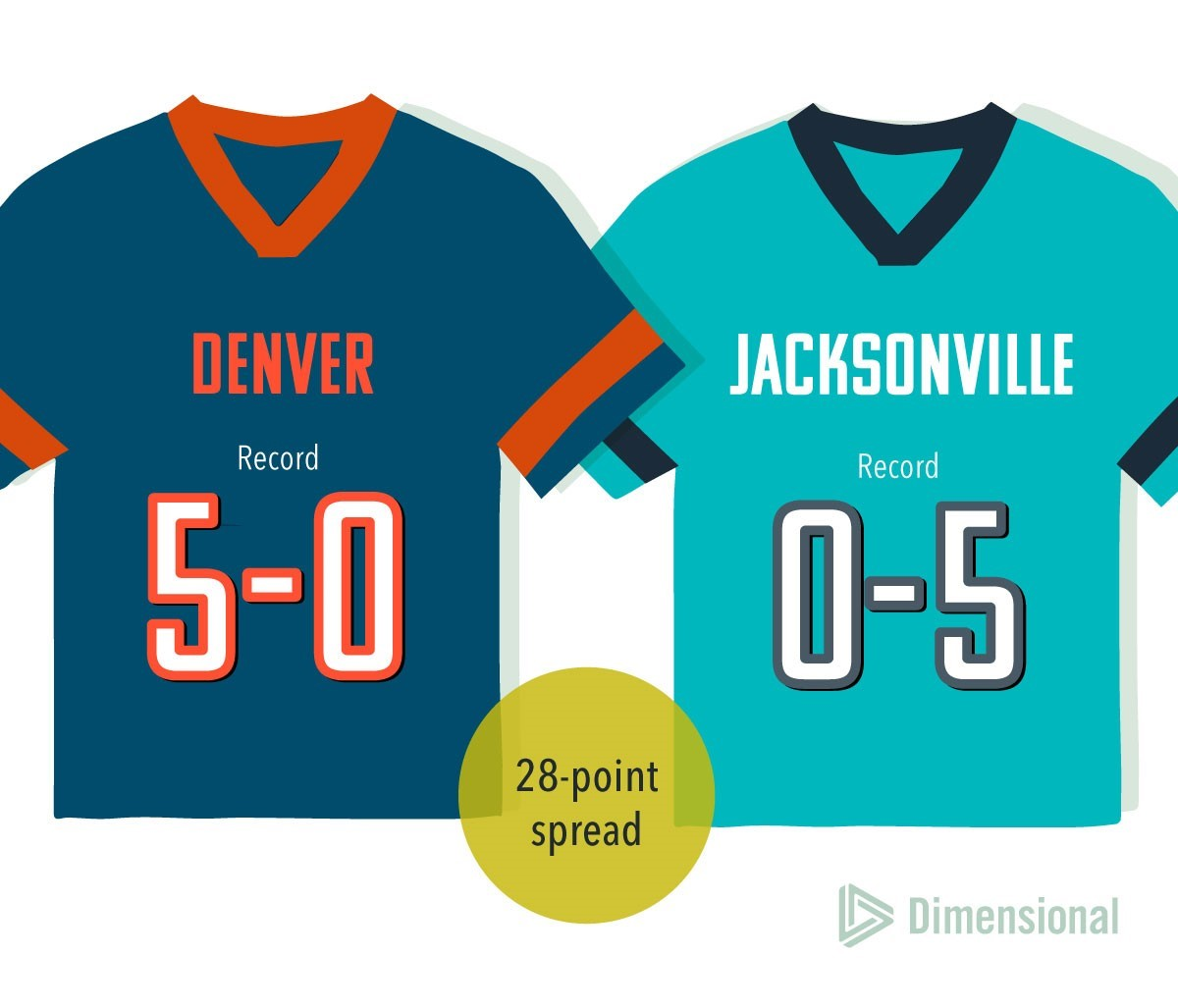An important function of competitive markets is driving prices to equilibrium. This refers to a state where market prices balance the demand from both buyers and sellers. Every trader who thinks the price of a security is high is offset by one who thinks the price is low. So, they agree to transact, voluntarily, at the current price. If there is insufficient interest in buying, the price must fall until a new equilibrium is reached.
If this sounds too abstract, sports betting markets may be a useful parallel. When an undefeated team squares off against a winless team, few expect the latter to emerge victorious. The only way to induce gamblers to bet on the weaker squad is to lower the "price." This is accomplished by a point spread indicating essentially how much the underdog can lose by and still be considered a winner for betting purposes.
The largest point spread in NFL history came in 2013 when the Denver Broncos played the Jacksonville Jaguars. The gulf in quality between the teams was so great that nobody would bet on the moribund Jaguars until you spotted them 28 free points. Anything short of that and the supply would exceed the demand for the Jaguars.
In case you're wondering, the Broncos won that 2013 contest by "only" 16 points. So, the winning bet was the Jaguars. An underdog winning against the spread is far from an aberration – historically, they do about half the time.1 And that's the key takeaway from market equilibrium. Winning against the market becomes a coin-flip because the quality of assets has already been handicapped in the prices. In other words, knowing a good company from a bad one won't help you pick better stocks than the market. You've got to have more insight into those companies than other investors, and that's a tall order in competitive markets.

- Levit, 2004.
Disclosures
All expressions of opinion are subject to change. This information is not meant to constitute investment advice, a recommendation of any securities product or investment strategy (including account type), or an offer of any services or products for sale, nor is it intended to provide a sufficient basis on which to make an investment decision. Investors should consult with a financial professional regarding their individual circumstances before making investment decisions. Diversification neither assures a profit nor guarantees against loss in a declining market.
This article originally appeared in Above the Fray, a weekly newsletter for Dimensional clients. It is republished here with permission of Dimensional Fund Advisors LP. No further republication or redistribution is permitted without the consent of Dimensional Fund Advisors LP.
This article is reprinted with permission from Dimensional Fund Advisors LP (DFA) and reflects the views of its original author, Wes Crill. The content and opinions expressed are those of the author and not necessarily those of Index Fund Advisors, Inc. (IFA). This article is provided for educational purposes only and does not constitute investment advice, a recommendation of securities, or an endorsement of any specific strategy by IFA. Investors are encouraged to consult with a qualified financial professional to address their individual circumstances before making any investment decision.














